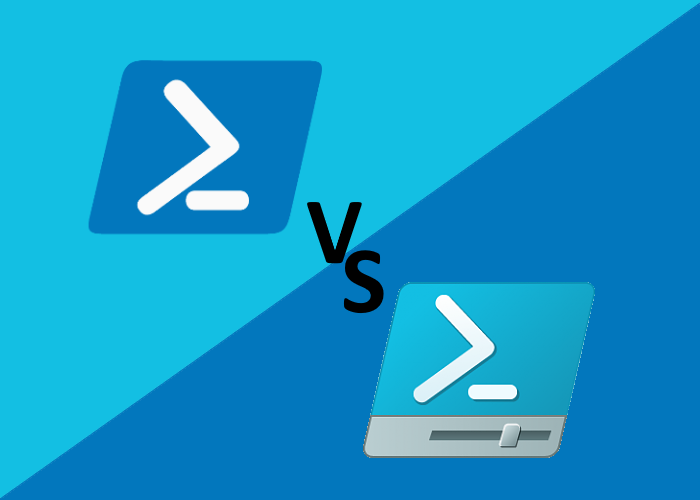A Shell is a program that uses the command line interface or graphical user interface and allows users to access and control their computers by entering commands. The program is named Shell because it is the outermost layer of an operating system. The shell acts as a communication medium between a user and an operating system.
PowerShell is a command-line and scripting tool in Windows 10. It is developed by Microsoft Corporation and is used for the automation of tasks and configuration management. PowerShell ISE is another tool developed by Microsoft Corporation which is used for creating, running, and debugging commands and scripts. In PowerShell ISE, ISE stands for Integrated Scripting Environment. Hence, PowerShell ISE also comprises some advanced features that Windows PowerShell does not have.

While PowerShell uses a command-line interface (CLI), PowerShell ISE uses a graphical user interface (GUI). Because GUI is easy to use and understand, users can execute and debug commands and scripts without writing all the commands in the command-line interface. Apart from this, there are several more features that make PowerShell ISE more advanced than PowerShell. This article illustrates the difference between Windows PowerShell and Windows PowerShell ISE.
What is PowerShell ISE?
As described above in this post, PowerShell ISE is a GUI-based application that lets users run and debug commands and scripts.
Let’s see the features of PowerShell ISE:
- Multiline editing: By using this feature, you can insert an empty line under the current line in the Command Pane. To use the Multiline editing feature, you have to press the Shift + Enter keys on your keyboard.
- Selective execution: This feature lets you run a part of a script by selecting the text. After selecting the text, you simply have to click on the Run Script button. The F5 key is the shortcut to this feature.
- Context-sensitive help: It opens a help file. To use this feature, type
Invoke-Itemand then press the F1 key.
Read: Windows Terminal Tips and Tricks.
Difference between PowerShell and PowerShell ISE
We will compare these tools based on the following properties/features:
- User-interface
- Tasks
- Editing the commands and scripts
- Context-sensitive Help
- Command Add-ons
1] User-interface
We have described above in this article that PowerShell has a command-line interface, whereas the PowerShell ISE comes with a graphical user interface. Due to this, PowerShell offers a user-friendly interface and is easy to use and understand for beginners.
If you compare the interface of both of these tools, you will find that PowerShell ISE comes with an attractive interface with a toolbar, menu bar, script pane, console pane, multiple tabs feature, etc.
2] Tasks
Because you can open multiple tabs in PowerShell ISE, it is a multitasking tool. You can run multiple commands and scripts in PowerShell ISE in different tabs. This feature is not available in PowerShell.
TIP: Posterpedia is a cool Microsoft Store app that will help you understand Microsoft technologies.
3] Editing commands and scripts
Editing a script in PowerShell ISE is easy as it comes with a number of tools that you can use for editing. If you click on the Edit menu, you will see the following features:
- Find in script
- Find next in script
- Find previous in script
- Replace in script
- Go to line
- Go to match
These features save your time by making the script editing process hassle-free. On the other hand, the Edit menu is not available in PowerShell, which makes the script editing process a bit time-consuming in case the script is long.
Read: How to Install and Use Windows PowerShell ISE.
4] Context-sensitive help
The context-sensitive help feature is not available in PowerShell.
Read: Terminal vs PowerShell vs Command Prompt difference explained
5] Commands Add-ons
In PowerShell ISE, a command add-ons panel is available on the right side of the interface. You can search for a particular command and insert it into the Console Pane by clicking on the Insert button. You can also filter the commands by clicking on the drop-down menu.
Such a type of panel is not available in PowerShell.
That’s it.
Related reads:
Leave a Reply